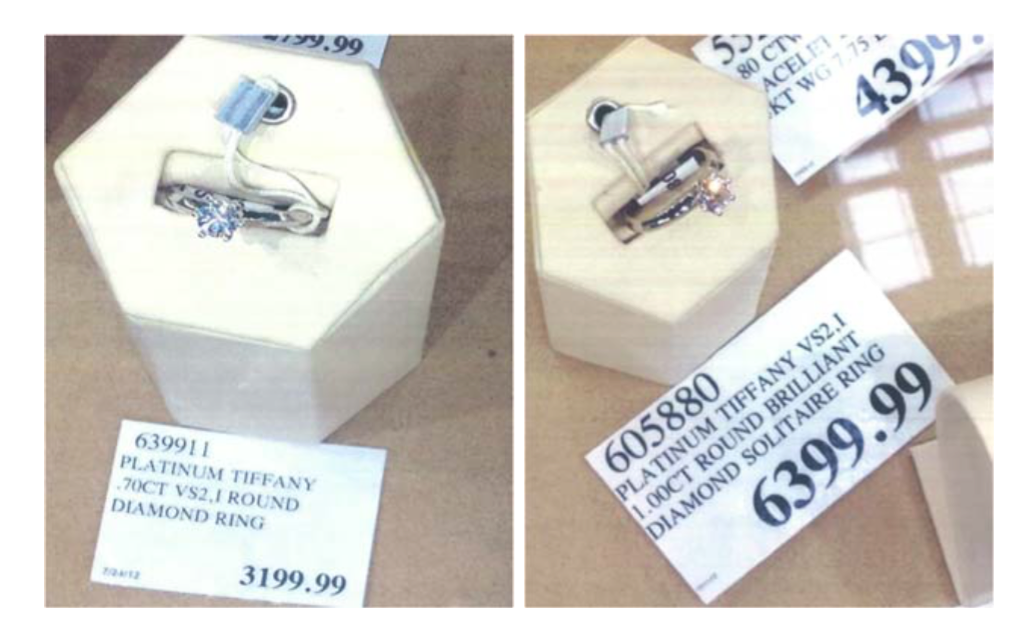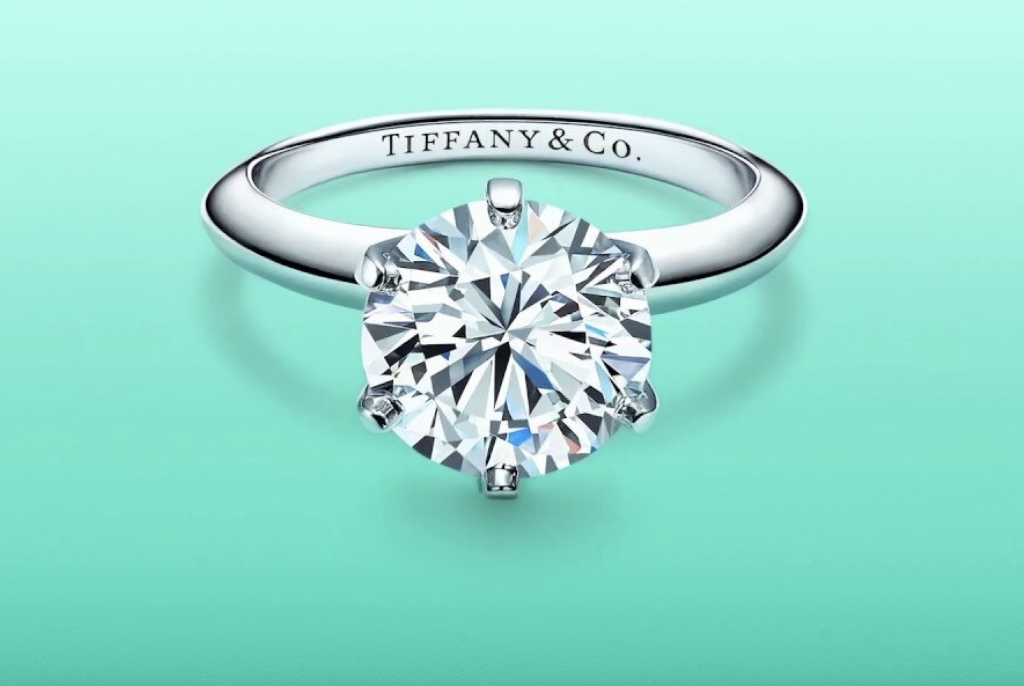This past summer, the U.S. Court of Appeals for the Second Circuit sided with Costco in a long-running legal battle over the warehouse club’s sale of rings that it labelled with the “Tiffany” name – but which were not affiliated with or manufactured by the famed jewelry company. In its August 17, 2020 decision, the Second Circuit vacated the lower court’s decision on summary judgment – which held that Costco was liable to Tiffany & Co. for willful trademark infringement and counterfeiting – and remanded the case back to district court for a new trial given that reasonable jurors could find that “discriminating” Costco customers would not be confused about the source of the rings and that Costco’s use of the “Tiffany” name was not meant to mislead customers.
In the same August 2020 decision, a 3-0 panel of judges for the Second Circuit also vacated the U.S. District Court for the Southern District of New York’s decision on Tiffany & Co.’s counterfeiting claim, holding that it was inappropriate of the lower court to hold Costco liable for trademark infringement at the summary judgment stage, and because counterfeiting is “merely an aggravated form of infringement,” it vacated the court’s judgment as to counterfeiting. The court also determined that liability for counterfeiting is inappropriate where the defendant can show “that it used a term identical to the registered mark otherwise than as a mark.” Costco had argued on appeal that its use of “Tiffany” was descriptive of the diamond setting – a diamond solitaire situated among six prongs – and thus, did not constitute use as a mark.
Fast forward to this week, and New York-based Tiffany & Co. is arguing that while the federal appeals court “previously determined that [it] can seek punitive damages and is entitled to a jury,” Costco has sought to “relitigate these already-decided issues” by way of a recent motion in limine. Despite Costco’s attempts, Tiffany asserts in its March 12 opposition, as previously reported by Law360, that “neither ruling should be disturbed.”
Punitive Damages
Addressing Costco’s argument over whether punitive damages – or those awarded in addition to actual damages when the defendant’s acts are “willful, malicious, oppressive, fraudulent, or reckless” – are available to Tiffany, counsel for the jewelry stalwart argues that the court “should decline to revisit its multiple prior decisions that punitive damages are available to Tiffany.” (The jury previously awarded Tiffany & Co. $8.25 million in punitive damages as part of a larger $21 million-plus damages sum, including trebled profits, and prejudgment interest).
“Even if reassessment was appropriate or warranted, Costco’s motion fails on the merits,” per Tiffany, which argues that the Issaquah, Washington-headquartered chain “incorrectly asserts that Tiffany needs to prove its lost profits before Tiffany can seek punitive damages.” (Tiffany says that it “does not dispute that it has not pursued a lost profits theory of damages against Costco,” and asserts that “given the difficulty of quantifying injury in trademark cases like this one, [its] request for an accounting serves as a measure of its damages,” as does its claim for nominal damages in connection with Costco’s trademark infringement and/or counterfeiting).
Instead, New York law “merely requires a showing of actual injury (not lost profits) to support a request for punitive damages,” and Tiffany argues that it “has more than made that showing here.” The LVMH-owned brand asserts, “One need look no further than the testimony of the many confused Costco consumers to understand the serious nature of Tiffany’s injuries.” Tiffany deposed six Costco consumers, “each of whom testified to their belief that they had purchased a genuine Tiffany & Co. ring from Costco” – in large part due to Costco’s use of the “Tiffany” name on signage, and in some cases, confirmation from Costco employees that the rings were, in fact, “Tiffany” rings.
According to Tiffany, one woman was “brought to tears by the poor quality of what she mistakenly believed to be Tiffany’s product.” After the diamond fell out of her ring, she was “left her with the impression that Tiffany ‘make[s] cheap stuff,’” according to Tiffany. The jewelry company claims that this “plainly demonstrate[es] the significant damage to [its] goodwill” that has resulted from Costco’s use of the “Tiffany” name, which is traditionally synonymous with “high quality” and “the very finest products.” (According to Tiffany, “Costco’s quality control measures pale by contrast.”)
Another deposed consumer revealed that she “was quite shocked to see Costco using the Tiffany name” and “found it [to be] a disappointment, which Tiffany says shows that “plainly she thought less of Tiffany for selling Tiffany diamond rings through Costco.” That “mistaken perception was pervasive and undoubtedly injured Tiffany’s reputation,” the company claims. And still yet, another Costco customer who purchased a “Tiffany” ring revealed that she believed the ring was a genuine Tiffany & Co. product, and “when her fiancée found out that the ring was not from Tiffany, it became a point ‘of contention between [them].’”

In addition to the responses from those Costco customers, Tiffany & Co. points to reports that Costco received about other confused consumers, noting that “a Costco salesperson who worked at the jewelry counter in the Huntington Beach, CA Costco, testified that she assisted a man and a woman who inquired whether they would be getting a blue box for their ‘Tiffany’ ring, believing that the ring was a genuine Tiffany & Co. diamond.” The jewelry company also notes that its expert conducted a likelihood of confusion survey that showed “high rates of consumer confusion of up to 41.6 percent,” thereby, providing “solid support for a finding of a likelihood of confusion” and “demonstrat[ing] Tiffany’s trademark injury.”
With the foregoing in mind and considering that “nothing material has changed since the Court last considered the arguments Costco raises in its motion,” Tiffany claims that the court “should decline Costco’s invitation to revisit its previous decisions and the parties should proceed to trial on Tiffany’s claims, including its request for punitive damages.”
A Jury Trial
In terms of the appropriateness of a jury trial, Tiffany argues that it is “entitled to try this case to a jury for three reasons: First, any award of punitive damages requires a determination of malice and willfulness, which should be made by a jury. Second, Tiffany’s pursuit of disgorgement requires resolution by a jury. And third, Tiffany’s claim for statutory damages entitles it to a jury.” And again, if those reasons are not enough, Tiffany asserts that Costco had its chance to raise this issue, and opted not to. To be exact, Tiffany claims that “Costco moved to strike Tiffany’s jury demand in its motion for summary judgment and its request was denied.” At that point, “Costco did not appeal the ruling and therefore, waived its present challenge to Tiffany’s entitlement to a jury, [and] not only did Costco fail to appeal this issue, Costco specifically requested that the Second Circuit remand the case for a jury trial.”
For these reasons, Tiffany claims that it and Costco should be permitted to “present [their] case[s] to a jury, as both parties previously requested,” and have “a jury should decide the claims in this case.”
Tiffany & Co.’s opposition comes 8 years after it first filed suit against Costco on February 14, 2013 in a New York federal court, accusing the retail chain of trademark infringement, counterfeiting, and unfair business practices, among other causes of action, and seeking tens of millions of dollars in damages. According to Tiffany, Costco had sold engagement rings – some costing upwards of $6,000 – using the “Tiffany” name to thousands of Costco members, who snatched up the sparklers under the false impression that they were authentic Tiffany products. An estimated 3,349 customers are believed to have purchased “Tiffany” rings at Costco during the relevant period.
In response, Costco argued that “Tiffany” is not a legally-protected trademark but instead, a generic term short for “Tiffany setting,” which describes a specific ring setting, and sought to have Tiffany’s federal registration for the mark invalidated.
*The case is Tiffany and Company v. Costco Wholesale Corporation, 0:17-cv-02798 (2nd Cir.), 1:13-cv-01041 (SDNY).











